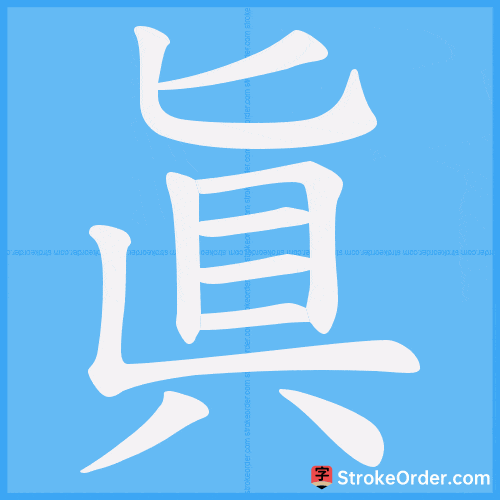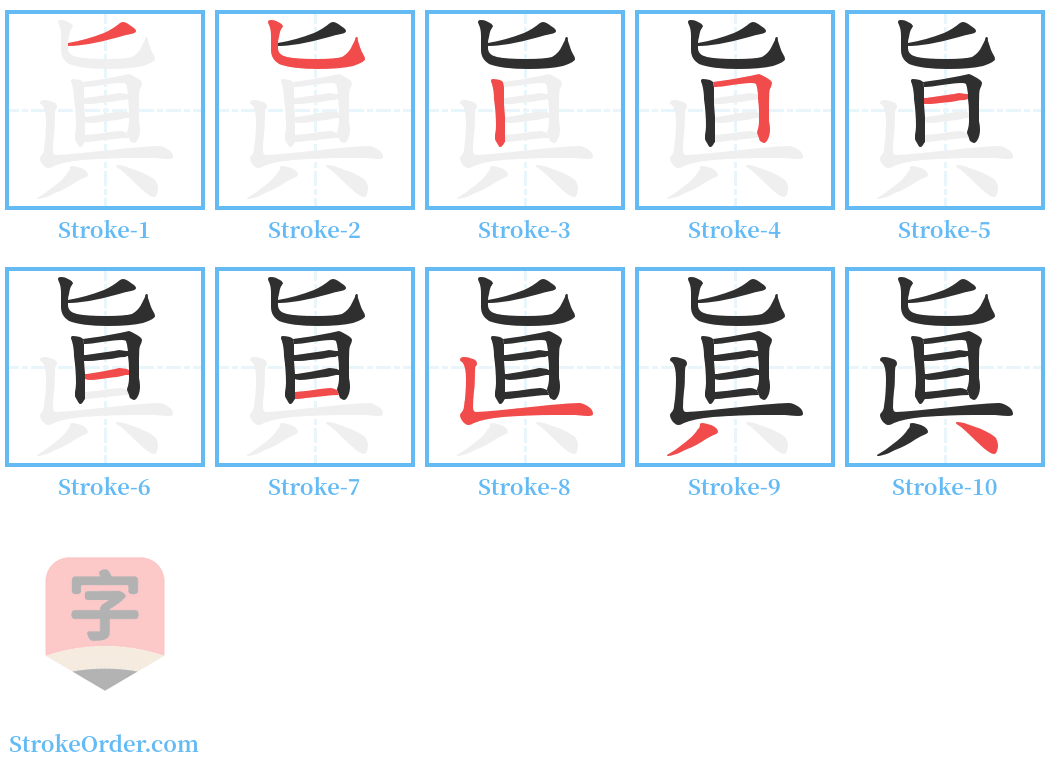眞 Stroke Order
Animated Stroke Order of 眞

Stroke Order Diagrams for 眞

Information of 眞
Pinyin
zhēn
Radical
目
Strokes
10 strokes
Usage
★★
Definition
Definition of 「眞」:
1. Same as "真" (true, real).
2. (Noun) (Pictophonetic. The small seal character is composed of 华 (huà), 目 (eye), 乚 (hidden), and 八 (tool or vehicle). According to "Shuōwén Jiězì": "Immortals transform and ascend to the heavens." The character represents transformation; eyes mean sight; 乚 signifies concealment; 八 represents a vehicle for carrying. The original meaning: In Taoism, a person who preserves and cultivates their true nature or practices cultivation to achieve enlightenment is referred to as a "true person.")
Same original meaning. In ancient times, referred to as an immortal. "True" means the immortal transforms and ascends to heaven. — "Shuōwén Jiězì". Note: The Six Classics do not contain the character "真".
3. (Noun) Similar to the above. The character forms derive from the components 华 (huà), 目 (eye), 乚 (hidden), and 八 (tool or vehicle). "Shuōwén Jiězì" notes: "Immortals change and ascend to heaven."
Same principle applies. This refers to the immortal in ancient times. "True" refers to the transformation of the immortal. — "Shuōwén Jiězì". Note: The Six Classics do not include the character "真".